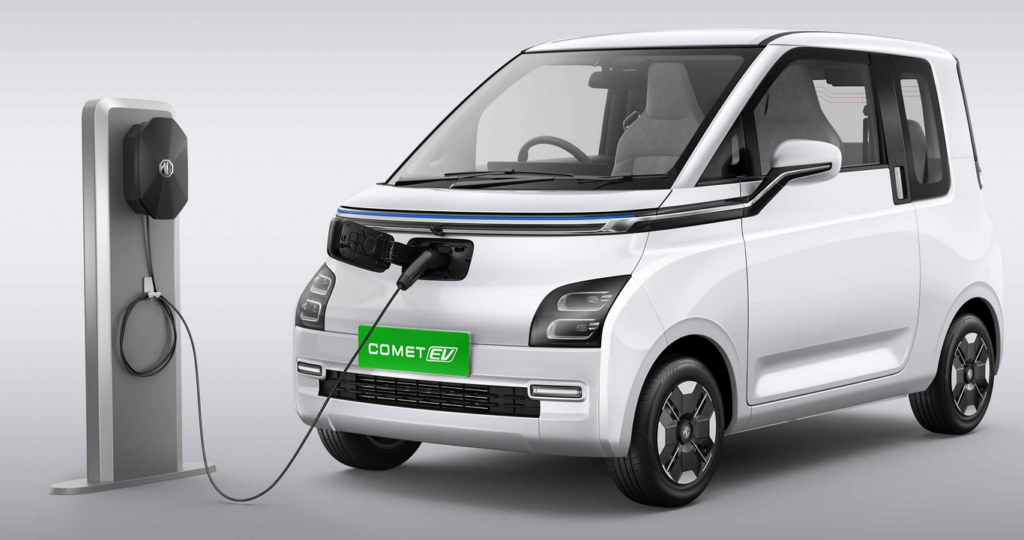Explore the best upcoming EVs: A comprehensive guide
Electric vehicles (EVs) represent a growing shift in how we power our cars. Instead of relying on traditional internal combustion engines (ICE), EVs run on electricity, often using rechargeable batteries. The term "upcoming EVs" refers to models that are set to launch in the near future—typically within the next 12 to 24 months.
These vehicles reflect advancements in technology, design, sustainability, and user expectations. They also offer an exciting preview of where the global automotive industry is heading—towards cleaner, smarter, and more connected transportation.
Why Upcoming EVs Matter Today
Rising Environmental Concerns
EVs help reduce greenhouse gas emissions, a major contributor to climate change. By moving away from fossil fuels, these vehicles help lower carbon footprints, particularly in urban areas with high traffic and air pollution.
Fuel Cost Savings
Electricity is often cheaper than gasoline or diesel, leading to long-term cost savings for consumers. EVs are also more efficient, meaning they use less energy to travel the same distance compared to combustion vehicles.

Growing Consumer Demand
Drivers are increasingly interested in EVs due to:
Lower operational costs
Quiet, smooth performance
Access to newer technologies like autonomous features and connectivity
Affecting a Broad Audience
The impact of EV adoption goes beyond just car buyers. It affects:
Automakers, who are shifting production lines
Governments, investing in EV infrastructure
Utility providers, managing increased demand on power grids
Urban planners, updating infrastructure for EV charging
Recent Trends and Updates
The last year has seen significant momentum in the EV space. Here are some key updates:
New Model Launches
Tesla Cybertruck officially began deliveries in late 2024, bringing a bold design and utility-focused performance.
Hyundai Ioniq 7 and Kia EV9, both large electric SUVs, are set to enter major markets in 2025 with family-friendly features and long range.
Volvo EX30, a compact, affordable SUV, gained attention in early 2025 for combining premium feel with budget-conscious pricing.
Battery Innovation
Solid-state batteries are advancing quickly, offering higher energy density and faster charging. Toyota and QuantumScape announced test results showing commercial viability by late 2025.
Lithium iron phosphate (LFP) batteries continue to grow in popularity due to safety and cost efficiency, especially in budget models.
Range Improvements
Several models launching in 2025 promise ranges of over 500 km (310 miles) on a single charge.
EVs are now more suitable for long-distance travel, especially with fast-charging networks expanding.
Price Reductions
Due to battery cost reductions and increased competition, several manufacturers have announced lower starting prices, bringing EVs closer to ICE vehicle affordability.
Tools and Resources for EV Buyers
Choosing an EV involves comparing range, charging speed, price, and total cost of ownership. Fortunately, several tools can help.
EV Comparison Tools
| Tool | Features |
|---|---|
| EV Database (ev-database.org) | Real-world range estimates, charging speeds, efficiency ratings |
| PlugShare | Crowd-sourced EV charging station map |
| AFDC Alternative Fuel Station Locator (U.S.) | Government-backed map of public charging stations |
| Zap-Map (UK) | Live charging station availability and route planning |
| Carwow EV Tool | Compare latest UK EV models with pricing, incentives |
Cost Calculators
-
U.S. Department of Energy EV Tool: Compares fuel cost savings between EVs and gasoline cars.
-
Energuide (Canada): Calculates annual energy costs based on usage.
-
Tesla Trip Planner: Helps estimate charging stops and travel times.
EV Range and Charging Time Chart (2025 Models)
| Model | Estimated Range (km) | Battery Size (kWh) | 10–80% Fast Charge Time |
|---|---|---|---|
| Tesla Cybertruck | ~515 km | 123 kWh | ~30 minutes |
| Hyundai Ioniq 7 | ~480 km | 100 kWh | ~20 minutes |
| Volvo EX30 | ~450 km | 69 kWh | ~25 minutes |
| Kia EV9 | ~540 km | 99.8 kWh | ~20 minutes |
| BYD Seal | ~570 km | 82.5 kWh | ~27 minutes |
Frequently Asked Questions (FAQs)
1. Are upcoming EVs cheaper than current models?
Not always. While battery costs are declining, many upcoming EVs offer new features, larger batteries, or premium finishes, which may keep prices steady. However, increased competition and government incentives help offset costs for buyers.
2. Will I have enough places to charge an EV on long trips?
Yes, in most developed regions. Charging infrastructure has expanded rapidly, with fast-charging stations now available on major highways across North America, Europe, and parts of Asia. Planning apps like PlugShare and A Better Route Planner (ABRP) help identify stops along the way.
3. How long do EV batteries last?
Modern EV batteries typically last 8 to 15 years, or over 160,000 km (100,000 miles) before noticeable degradation. Most manufacturers offer 8-year warranties on battery packs.
4. What’s the difference between solid-state and lithium-ion batteries?
Solid-state batteries use solid electrolytes instead of liquid ones, offering higher energy density, improved safety, and faster charging. They are still in development but are expected to be commercially available around 2026 or later.
5. Are EVs really greener if electricity comes from coal?
Even when powered by coal-heavy grids, EVs usually emit fewer lifecycle emissions than gasoline vehicles. As grids become cleaner with renewable energy, EVs become even more environmentally friendly.
Conclusion: EVs Are the Future, and It’s Closer Than You Think
Upcoming EVs are not just about new cars—they reflect a larger global movement toward sustainable transport, technological innovation, and consumer empowerment. Whether you’re considering your first EV or planning for future purchases, now is a great time to stay informed.
As battery technologies improve, charging becomes faster, and choices expand across price ranges, EVs are becoming a practical choice for more people around the world.